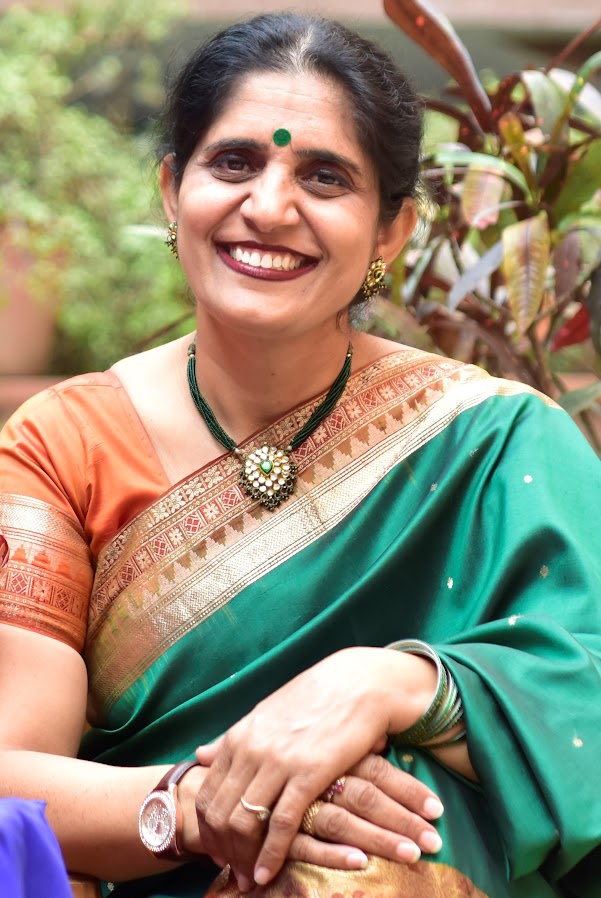
Dr. Ranjit Kaur – NPTEL STAR
Dr. Ranjit Kaur’s career reads like a masterclass in lifelong learning and quiet leadership. At Xavier’s College, Jaipur, where she serves as Academic Coordinator and Assistant Professor of English, she brings more than three decades of teaching and administrative experience to every classroom and committee room she enters. NET- and SET-qualified, and holding six master’s degrees and a PhD from the University of Rajasthan on prison narratives, Dr. Kaur has been approved by the University as a research supervisor guiding three scholars; she also authors and edits books on communication, ethics and gender studies, and frequently serves as a resource person and keynote speaker at national and international forums.
Her engagement with MOOCs has been no lesser feat: what began as a 2021 faculty mandate soon turned into a passion — she has completed 46 NPTEL courses (60 across platforms) and earned 13 star certifications, two NPTEL Champion titles and the Domain Scholar recognition in English studies, along with a string of learner badges that now characterise her work as the college’s NPTEL SPOC, mentoring students and faculty on internships, competitive-exam preparation and skill-building opportunities.
Yet it is not the certificates that define her story so much as how she translates learning into practice. Dr. Kaur describes her NPTEL journey as a deliberate widening of horizons: while English literature remained her anchor — with courses in gender and literature, literary theory and criticism, modern Indian writing in translation, trauma and narrative modes — she also pursued psychology, educational leadership, outcome-based learning and even courses on sustainability and organizational dynamics.
The “Science of Happiness and Well-being” deepened her understanding of human behaviour and student welfare; “Introduction to Brain & Behavior” sharpened her capacity to mentor students under pressure; and a course on literary and cultural disability studies, which included interviews and real-life perspectives, reshaped how she structures inclusive teaching. Each course, she says, became a tool to convert theory into classroom strategies, to communicate better, to coach students for the real demands of internships and presentations, and to spot stress early.
That practical turn is most visible in her community work. Guided by a UGC course on Community Engagement and Social Responsibility and accompanied by a committed college team, Dr. Kaur helped lead the adoption of five villages — not with top-down directives but with a posture of listening, collaboration and steady follow-up. They began with surveys and case studies to understand needs rather than assume them;
when local leaders greeted her — a woman coordinator — with gendered taunts, she chose humility over confrontation, telling them she wanted to learn from their experience — a move that disarmed hostility and opened conversation. She insisted on being firm but respectful, combining principled persistence with gestures that acknowledged villagers’ dignity.
That relational approach was matched by practical projects: organic-farming pilots introduced with local participation, vocational training and a small lab established with help from a visiting scientist from Kolkata, and, above all, the sustained involvement of college students and faculty who returned regularly to the villages rather than making one-off visits. The result was a two-way exchange: villagers came to respect the college team and even felicitated them, while students gained hands-on skills; villages benefited from practical interventions, and the college strengthened its social responsibility profile.
Behind these achievements sits a support system she acknowledges with gratitude. Her management gave her leave for exams and celebrated her wins as institutional assets; her husband, son and in-laws handled household responsibilities and encouraged travel for courses and events; and students and colleagues responded to her example with renewed motivation.
Above all, Dr. Kaur’s message is simple and compelling: there is no limit to learning. For her, NPTEL has been more than a source of certificates — it has been a practical curriculum for building competence, character and community partnerships. By living what she teaches — enrolling in an MA to inspire students, turning classroom theory into village projects, and repeatedly stepping into new domains — she shows that education is not a phase but a lifelong journey that keeps widening with every course and every conversation.
– written by Satyam Shukla

